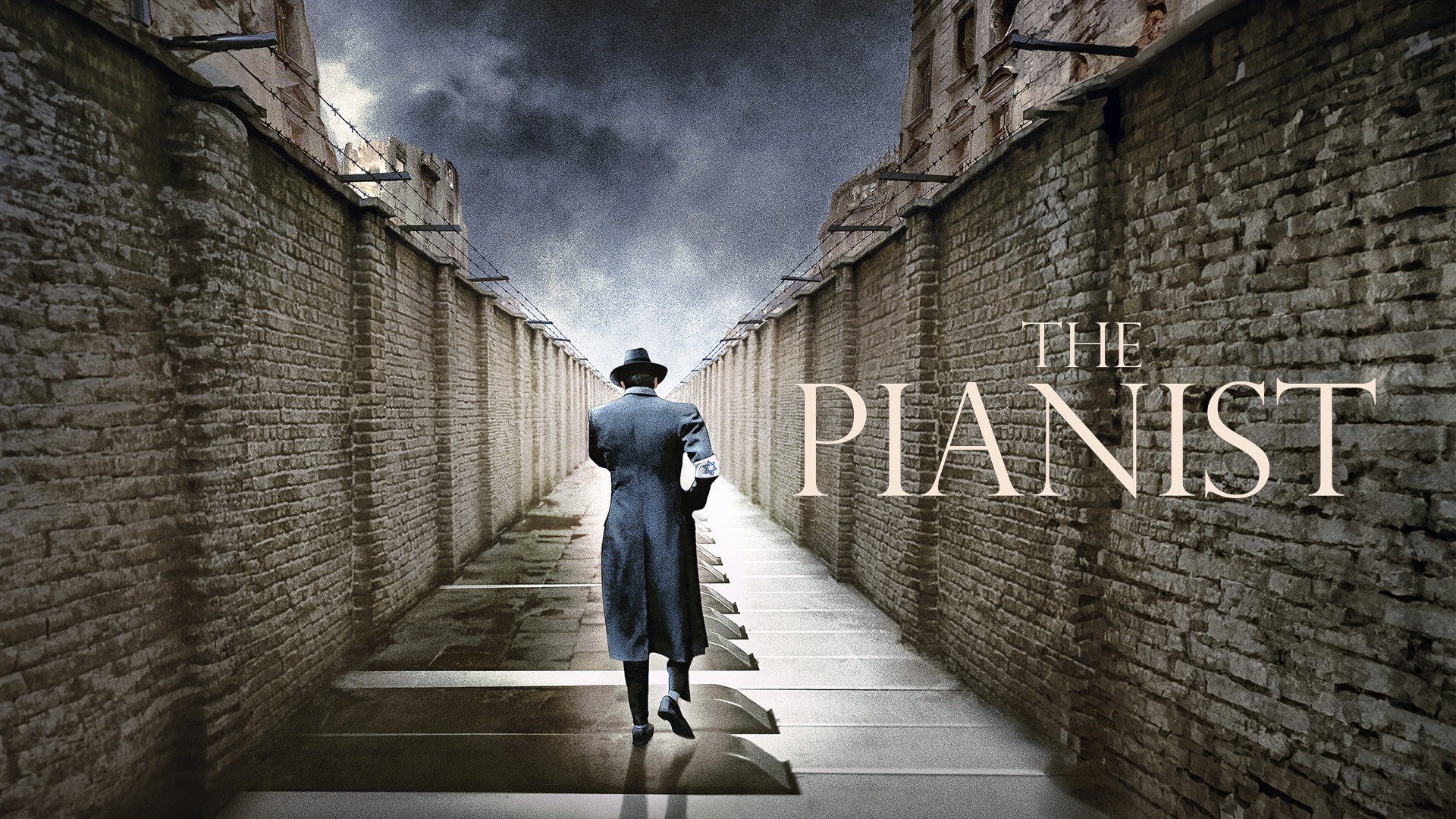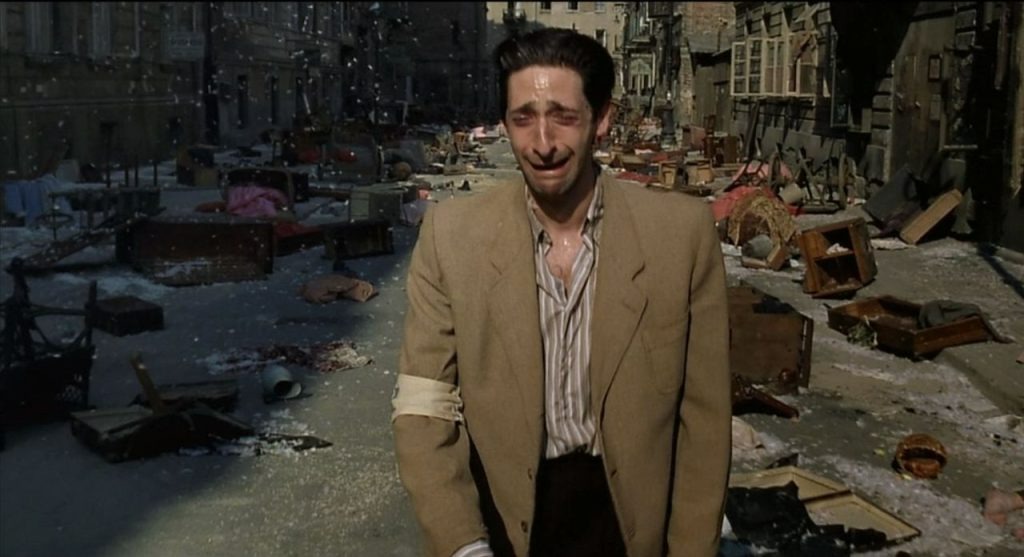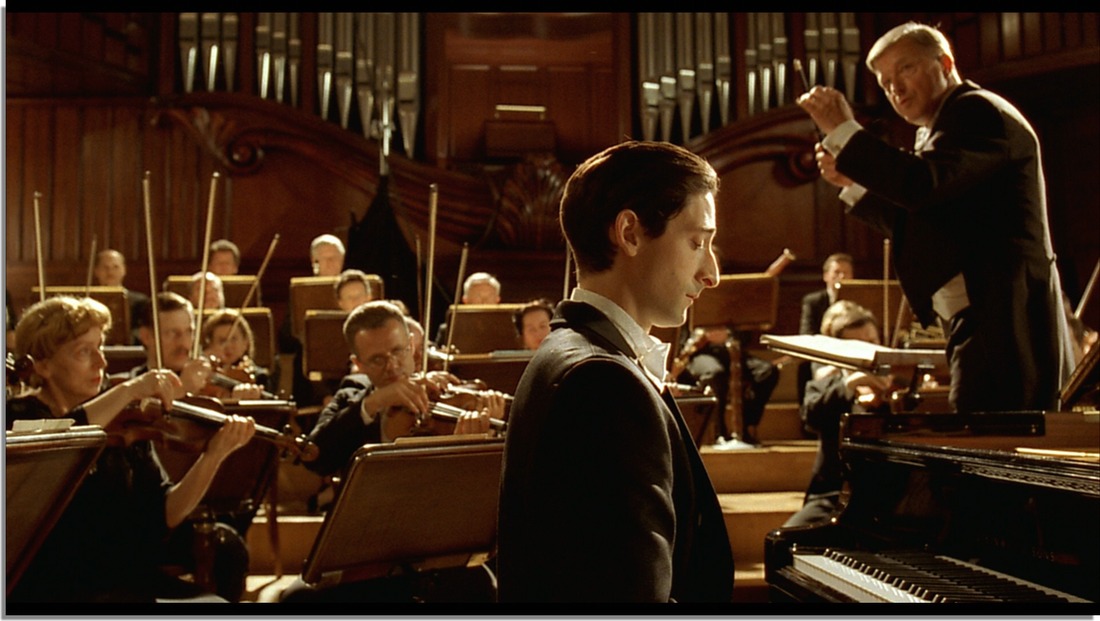
Review of The Pianist (2002)
General Information
Director: Roman Polanski
Main Cast:Adrien Brody (Władysław Szpilman)
Thomas Kretschmann (Captain Wilm Hosenfeld)
Frank Finlay (Father Szpilman)
Maureen Lipman (Mother Szpilman)
Genre: Biography, Drama, War
Runtime: 150 minutes
Plot
The Pianist is a harrowing yet poignant true story based on the memoir of Władysław Szpilman, a Polish-Jewish pianist who survived the Holocaust. Set during World War II in Nazi-occupied Warsaw, the film chronicles Szpilman’s life from his thriving career as a musician to the devastating loss of his family and his struggle for survival amidst the horrors of the Holocaust. As Szpilman hides in the ruins of Warsaw, music becomes his solace and symbol of hope in the face of overwhelming despair.

Highlights
Adrien Brody’s PerformanceAdrien Brody delivers an extraordinary, Oscar-winning performance as Szpilman, capturing his physical and emotional descent with raw vulnerability. Brody’s portrayal is both understated and powerful, expressing the devastation, resilience, and humanity of a man enduring unimaginable suffering.
Roman Polanski’s DirectionPolanski’s direction is masterful, blending stark realism with deeply personal storytelling. Himself a survivor of the Holocaust, Polanski brings an authenticity to the film that avoids sensationalism, instead focusing on the quiet, harrowing realities of survival.
CinematographyThe film’s cinematography, by Paweł Edelman, is hauntingly beautiful. The desolate ruins of Warsaw, the stark contrasts of light and shadow, and the claustrophobic interiors create a visual landscape that mirrors Szpilman’s emotional turmoil and isolation.
Music as a Central ThemeThe film uses music as both a literal and symbolic element. Szpilman’s piano performances highlight the transformative power of art, serving as a lifeline for him and a reminder of humanity amidst the barbarity of war. Chopin’s compositions, in particular, resonate deeply, adding to the film’s emotional weight.

Historical AuthenticityThe Pianist offers a brutally honest portrayal of life in the Warsaw Ghetto and the atrocities of the Holocaust. The attention to detail—from costumes to the progression of the war’s impact on the city—grounds the film in historical reality, making it both educational and deeply moving.
Themes of Survival and HumanityThe film explores the strength of the human spirit, the randomness of survival, and the small acts of kindness that shine through the darkest moments. Szpilman’s encounter with German officer Wilm Hosenfeld (played by Thomas Kretschmann) highlights the complexities of humanity, even during war.
Subtlety in StorytellingUnlike many war films, The Pianist does not rely on dramatic battles or overt heroics. Instead, it focuses on one man’s quiet endurance and the horrors he witnesses, making the story deeply personal and universally resonant.
Criticisms
Slow PacingSome viewers may find the film’s deliberate pacing slow, particularly during the latter half when Szpilman is in hiding. However, this reflects the monotony and psychological toll of his prolonged isolation.

Emotional RestraintWhile the film’s restraint is often praised, some critics feel it could have delved deeper into Szpilman’s emotional state, particularly his psychological scars after the war.
Verdict
The Pianist is a profoundly moving and meticulously crafted film that stands as one of the most powerful depictions of the Holocaust in cinema. With Adrien Brody’s unforgettable performance, Roman Polanski’s masterful direction, and its unflinching portrayal of resilience in the face of unimaginable suffering, the film is both a tribute to the enduring power of art and a haunting reminder of the horrors of war.
